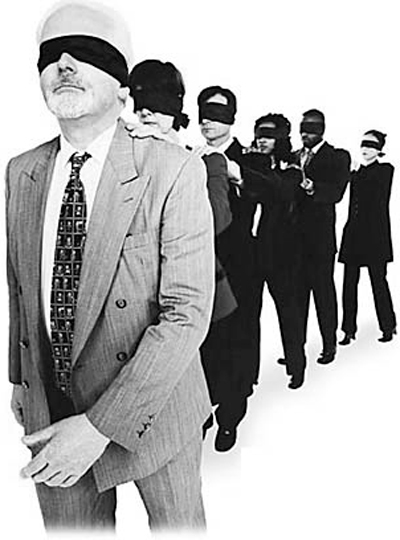Every day more technology is being invented, but know that such things come at a high cost.
Advancement of material vision or material civilization is a great stumbling block for spiritual advancement. Such material advancement entangles the living being in the bondage of a material body followed by all sorts of material miseries. Such material advancement is called anartha, or things not wanted. Actually this is so. In the present context of material advancement one uses lipstick at a cost of five dollars, and there are so many unwanted things which are all products of the material conception of life. By diverting attention to so many unwanted things, human energy is spoiled without achievement of spiritual realization, the prime necessity of human life.
If you accept our Krishna consciousness movement, there will be no unemployment. We can at least give this manifesto to the people. “There will be no more unemployment!” People will be very glad to hear this proposal. Now this machine culture, this industrial nonsense, actually means more unemployment. One machine will work for a hundred people. So a hundred people become unemployed, and one technician, he gets all the salaries by working on the computer. He’s very expert at it, so he’ll take three thousand dollars, and others will be unemployed. This is going on. And the people are thinking, “Advancement of civilization.” Advancement of civilization to them means “Exploit others and you’ll become happy.” This is their idea of advancement of civilization. Others may die for such advancement, out of starvation, and one person takes all the money and spends it for wine, sex, and cars. That’s all. This is being called advancement of civilization.
Sarve sukhino bhavantu. This is the Vedic civilization’s motto: “Let everyone be happy.” That is the Vedic culture’s ideal. But, the materialistic civilization, they’re thinking: “Let everyone suffer; I’ll become happy. ” But, a transcendentalist is thinking, “How will these poor people ever benefit?”
This is a transcendentalist’s mentality. Para-duhkha-duhkhi. He’s unhappy by seeing others unhappy. This is spiritual philosophy. A spiritualist shall work hard and undergo all tribulation for others benefit. He has no problem. A Krishna conscious individual has no problems personally, because he has taken shelter of Krishna. Krishna says [Bhagavad-gita 9.31], “Declare it boldly that My devotee never perishes.” Krishna gives a guarantee: “Anyone who has taken shelter of Me, I will give him protection.”
So this is the business of a transcendentalist. Such a person will have no politics. Politics means planning for one’s own happiness. That is politics. So in a Krishna Conscious society there should be no diplomacy, no politics. Everyone should be eager how to do good to others. That is Vedic culture. If one is planning, “I shall be leader,” “I shall be doing something,” that is not spiritual. Those politics are not good.
The leaders are misled, and they are misleading others. That is the chaotic condition in the world today. They want to import some war materials or something else, therefore they want foreign currency. So, they are sacrificing the convenience of the local people for foreign currency. These things are going on. These politicians, they create an atmosphere of fear and then take advantage of the people. Therefore the heads of the state must be clean, but now they are all materially motivated. Therefore the whole world is in a chaotic condition. There cannot be any consistency amongst the politicians. That is the defect, that the politicians are the heads, the leaders of the society, but they are all in disagreement. Everyone has one’s own ideal, and the fight is going on. Thus the unfortunate people in the state are suffering.
In the Vedic culture, before one can be accepted as a leader or master of society one must be tested by a certain criteria of character. Such public leaders may be less qualified in academic qualifications, but it is necessary primarily that they be completely free from the contamination of four vices, namely gambling, drinking, prostitution, and animal slaughter.
“Others may die for such advancement, out of starvation, and one person takes all the money and spends it for wine, sex, and cars. This is being called advancement of civilization.”
So at the present moment, in this godless civilization, the leaders do not know how to lead people so that they may become happy. It is the duty of the leader, government, father, teacher, guru, and others in authority to see that the subordinates are very happy. We find in the historical account, Mahabharata, that during the reign of King Yudhisthira people were not suffering even from excessive heat, cold, or anxiety. It is the duty of the leaders of the people and the government to see that the citizens are perfectly happy in their occupational duties and that they are advancing in spiritual knowledge, because human life is not meant for living a polished animal life. That is not human life.
This is the business of the cats, dogs, and hogs. The hog is working the whole day to find out stool: “Where is stool? Where is stool?” And as soon as he gets some stool and a little strength, immediately he thinks of sex life, without any discrimination, whether she is his mother, sister, or daughter. This kind of life is described in the Vedic texts as hog civilization. At the present moment, without any reference to spiritual consciousness, people are being taught to satisfy their senses, work very hard, and ruin the chance of human life. This human life is especially meant for solving all the problems of life.
“Because the leaders do not know what is the aim of life, what is the ultimate goal of life, therefore people in general are being misguided. Suppose a blind guy leads other blind persons. What will be the result?”
People have no knowledge how to stop birth, death, old age, and disease. Every living entity is eternal. That we learn from the Bhagavad-gita [2.20]. The living entity does not die even after the annihilation of the gross body. This is the first knowledge to understand. We have to transmigrate from this body to another body. [Bhagavad-gita 2.13] As I have transmigrated already from my childhood body to boyhood body, boyhood body to youth-hood body, now I am very old, so similarly, as I am existing in spite of changing so many types of bodies, similarly, after death, I will have to accept another body. This is a fact. But the modern educators do not know this, neither they believe, even though the practical example is there. Who is giving this example? The most authoritative Personality of Godhead, Krishna.
If a person is blind, how he can lead other blind people? That is not possible. It is dangerous for both of them. So the leaders, the politicians, the priest, they should be very pure, without any tinge of hypocrisy and corruption. The pillars of ignorant life are promiscuity, meat-eating, intoxication, and gambling. Now, unfortunately, the leaders are teaching people how to engage in such activities more and more. So, how then can such a society can be happy? It is not possible.
ASIDES:
UN-NECESSITIES OF LIFE
In ancient Sanskrit the word artha means “necessity of life.” And the word anartha means “artificial necessity.”
For example, there is no need of smoking. It is useless, but we have created it and now it has become an addiction. Therefore it is an anartha.
The materialistic society is creating unnecessary entanglement by producing so many artificial necessities of life.
If we are to become peaceful & happy, we have to minimize our artificial necessities, save time, and develop ourselves spiritually.
INDUSTRIAL DEVOLUTION
During the Industrial Revolution, the social structure of society changed dramatically.
The relentless pursuit of money caused an important social change: the ultimate breakdown of the family unit.
As industry progressed, people moved away from their families to find work, so the family decreased in size and became nuclear. This was known as the theory of functional fit.
The result was estrangement, or separation of individuals from one another so that they do not identify with each other as a group. Thus, Karl Marx (1818–83) argued that it was employers who enjoyed the products of industry, rather than the workers who actually made the goods; under capitalism, workers become appendages of the machine they use rather than whole people.
The psychological state of alienation is said to include isolation, powerlessness, and meaninglessness, and, not surprisingly, has been linked with state-owned industries just as much, if not more than, with capitalism, since no identifiable person owns a state industry.
The concept of alienation has been used to explain the rise of urban problems such as violent football fans, street gangs, and alcohol and drug addiction.








